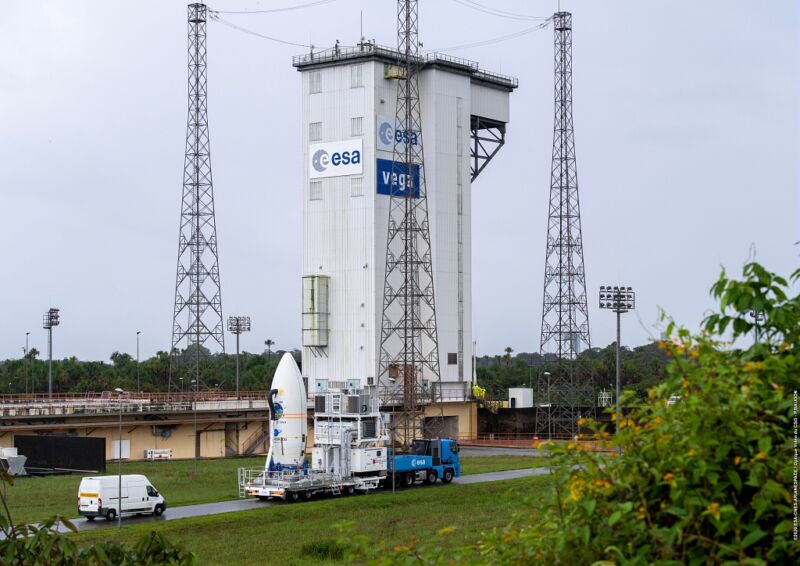Launch of Europe’s smallest rocket is delayed seven weeks—for weather
Ars Technica » Scientific Method 2020-07-01

Enlarge / The VV16 payload is trucked to the Vega Launch Zone in French Guiana. (credit: ESA/CNES/Arianespace)
The European rocket firm Arianespace has been trying to launch a Vega rocket carrying dozens of small satellites for the better part of a year.
First, the launch was delayed from mid-2019 after the Vega rocket experienced its first failure in 15 flights. (That happened in July 2019.) Early this year, after the rocket's failure was investigated and addressed, Arianespace set a date for Vega's return-to-flight mission on March 23. But then the COVID-19 pandemic began spreading around the world, and the European spaceport in French Guiana was ultimately closed for about three months.
Finally, the launch date was reset for June 18. The four-stage rocket and its payload of 53 separate satellites—ranging from 1kg CubeSats up to 500kg mini-satellites—was readied. All appeared go for launch with this "VV16" mission nearly two weeks ago—then the forecast turned unfavorable.